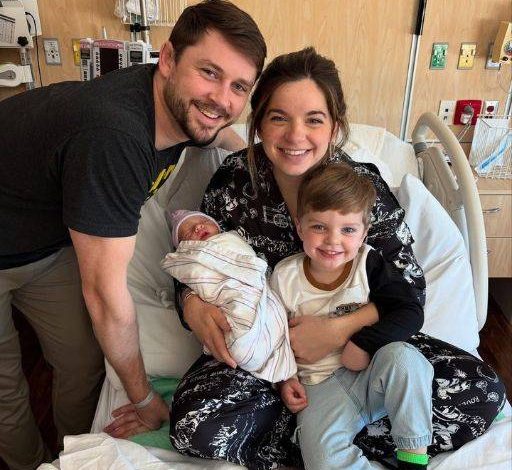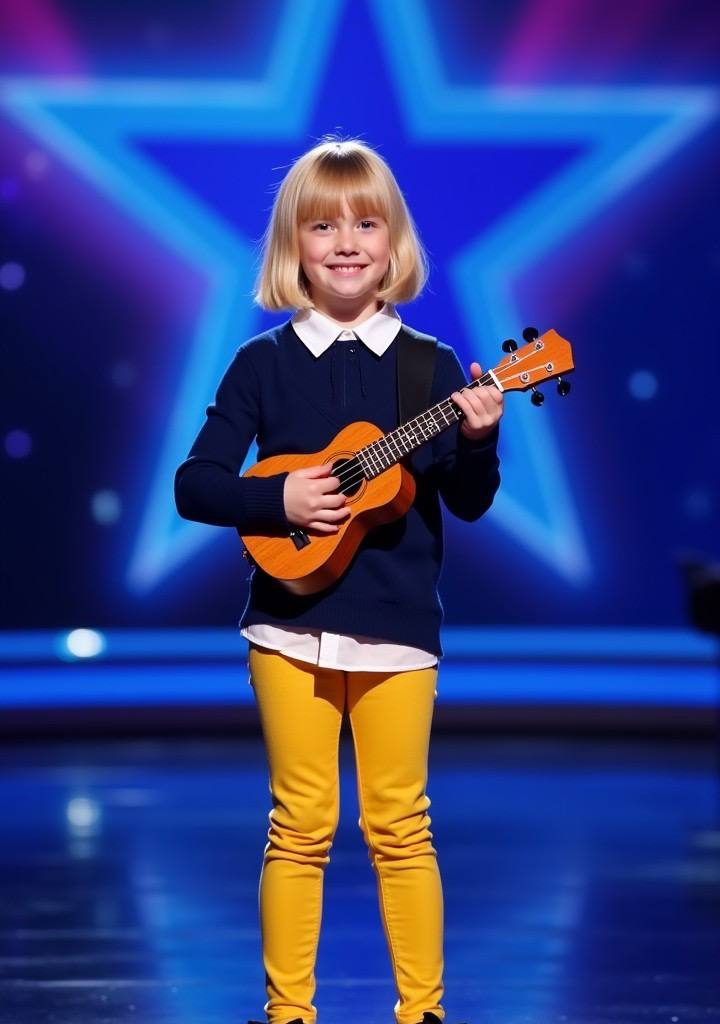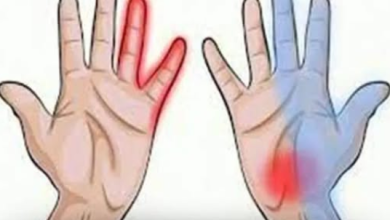
The Name That Changed Everything?!
The hospital room smelled faintly of antiseptic and warm cotton sheets. I stared at the photo on my phone: my husband beside me, smiling, his hand wrapped around mine. Our newborn was swaddled in pale blue in my arms, and our five-year-old clutched a balloon at the foot of the bed. From the outside, we looked whole—a family of four, ready to go home.
Then, as the nurse handed me the discharge paperwork, my eyes caught a detail that shouldn’t have been there. Under “Emergency Contact,” was a name I didn’t recognize.
“Who’s Alana?” I asked, trying to keep my voice even.
Color drained from my husband’s face. The paper trembled in his hand.
“It’s… just someone from work,” he stammered, hesitating. “It’s protocol. I didn’t think it mattered.”
The room tilted. My grip on his hand loosened. “Someone from work? You’re married. We have two kids. Why is your emergency contact not me?”
He rubbed the back of his neck—the gesture he made when he felt cornered.
“It’s not what you think,” he said finally. “It’s complicated.”
The nurse muttered an awkward apology and slipped out, leaving the air thick. My heart hammered in my ears. I looked down at our son, his tiny chest rising and falling with innocent rhythm, unaware that something fundamental had just shifted beneath us.
“Complicated how?” I whispered.
He sank into the plastic chair by the window and exhaled. “Her name is Alana. She’s in logistics. Last year, after… after the miscarriage, when you pulled away, I didn’t know how to reach you. I was scared, lost. Alana just… listened. That’s all it was.”
I stared at him, betrayal swelling like a bruise. “Listened? Then why is her name where mine should be?”
Silence answered. It was thicker than any explanation.
Back home, nights became a study in exhaustion and quiet tension. Our newborn whimpered in the bassinet beside me. Our five-year-old snored softly in his dinosaur bed. My husband slept, unaware of the way my gaze tracked him, the way I replayed his words, searching for proof of anything more or less than what he’d admitted.
There were no hotel receipts, no lipstick smears, no conspiratorial whispers. But something had broken. He’d turned to someone else during the worst of my grief instead of reaching for me.
Days later, with the house dark and the children asleep, I sat him at the kitchen table. “Did you have an emotional affair?” I asked simply.
He froze, then nodded. “Yes. But that’s all it was.”
“Did you love her?”
“No,” he said quickly. “She made me feel seen. You shut me out. I felt like I was drowning.”
I swallowed. It was true—I had withdrawn. After losing the baby, I had built walls around my grief, wearing composure like armor and assuming we’d both find our way back eventually. I hadn’t realized he was adrift while I was trying to surface.
“I should’ve told you how lost I felt,” I whispered. “And you should’ve told me, too.”
We agreed to try counseling. I wasn’t ready to walk away, but I couldn’t pretend nothing had changed.
Therapy pulled up everything we’d buried. I learned that on the day I gave birth, he panicked. Doubts about fatherhood after the miscarriage overpowered him. He reached for Alana instead of me because he didn’t know how to reach me. She didn’t answer, and in the chaos, her name remained on the hospital form.
The therapist asked me a question that lodged itself like a splinter: “Sarah, do you feel safe with him now?”
I didn’t have an answer.
Weeks blurred into months. He cooked dinners, left handwritten notes in my purse, rose for night feedings so I could sleep. He was showing up. Gradually, the part of me that had gone numb flickered. A guarded space remained—always watching, always wary—but tenderness began creeping back in.
Then I found the notebook. It was tucked away in a drawer among baby paperwork, a small leather journal. Curious, I opened it.
It wasn’t schedules or grocery lists. It was letters to me.
“I miss us before we broke,” one entry read. “I’m not chasing Alana. I’m chasing you. But I don’t think I deserve you anymore.”
I sat on the floor, clutching those pages, and broke. I cried until my throat ached.
The next morning I left the kids with my sister, packed a bag, and drove to the coast. I needed space—not to decide, but to breathe.
At a weathered café by the sea, an elderly woman slid into the chair across from me without asking. Her smile was warm and quiet. “Are you running from something, or toward something?” she asked.
I let out a bitter laugh. “Both.”
She nodded. “Truth usually lives somewhere in the middle.”
Two days later I came home. His eyes were red-rimmed.
“I thought you were leaving,” he said, voice cracking.
“I thought I might,” I answered. “But I’m not ready to decide.”
That night we talked—not to defend or accuse, but to really talk. I realized something: I still loved him. Underneath the guilt and fear, he still loved me. That love had not vanished. It had been buried.
We chose to try again. No sweeping promises, just small daily stitches: evening walks, a monthly date, a shared journal where we wrote things too fragile to speak.
Months after that, a Facebook message from Alana appeared. My thumb hovered over delete. Instead, I opened it.
“Sarah, I’m so sorry. I should never have let things get so close. He spoke of your strength often—he admired you even when you couldn’t see it. I’m moving away. I’m working on myself. I hope you’re okay. Peace to you.”
I didn’t reply, but something loosened. Anger, once tight and raw, softened just enough to stop consuming me.
On our anniversary that spring, he surprised me with a trip to the same beach where I had sat, uncertain whether I would stay or leave. We walked barefoot along the shoreline.
“Thank you,” he said softly, “for not giving up on us.”
I looked at him—older, wearier, undeniably mine—and said, “Thank you for finally showing up.”
A few months later, our five-year-old came home with a school project titled The Family That Nearly Broke but Didn’t. He had drawn a house in a storm, the roof rattling, windows cracked, and inside, stick figures tightly holding hands against the wind. I cried, realizing how deeply children sense the fractures and the mending.
We are not perfect. We still argue. We still stumble. But now, when our baby took his first unsteady steps, he wobbled toward my husband, and my husband caught him without missing a beat. In that moment I understood: he might falter, but he would not let us fall.
Love isn’t proven when everything goes smoothly. It is tested when it’s cracked open, when misunderstandings, grief, and fear threaten to swallow it whole. Every day we choose: let the fractures define us, or let the love that remains reshape us.
I chose to rebuild.
Somehow, against everything that felt inevitable in those first raw days, love is stronger now—not because it was unbroken, but because it survived.




